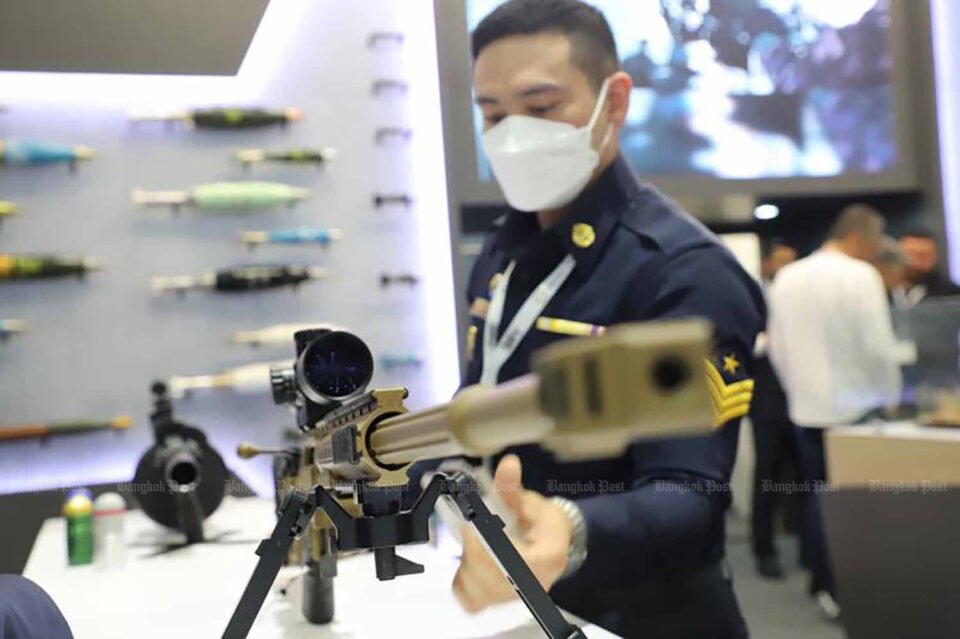According to a member of the armed forces, Prime Minister Srettha Thavisin is moving forward with a plan to restructure the armed forces, the first step of which is to drastically alter the process of acquiring new weaponry.
The new premier met with military heads last week, and they reviewed the new administration’s plans to implement its objectives on military and security matters.
At the conference, the military heads were informed that Sutin Klungsang, a civilian and the deputy leader of the Pheu Thai, would be the new defense minister.
Mr. Sutin claims to have sought counsel from former defense minister Gen. Thammarak Isarangkura na Ayudhaya. For additional guidance, he intends to consult with other ex-defense ministers.
Mr. Srettha assured the military chiefs that the Pheu Thai-led administration did not intend to “hurt” them because of the vital role they play in defending the country.
According to the source, Mr. Srettha added, “although reform is necessary, it will be gradual.”
Mr. Srettha has assured the public that the government will maintain its commitment to the purchase of weapons, but he has cautioned that any such plans must be backed up by the promise of tangible economic advantages to Thailand.
The source explained that any attempt to purchase weapons would also need to include an agreement to import goods from Thailand.
For example, if you want to buy new weaponry for 80 billion baht, you’ll need to negotiate a deal to import 100-200 billion baht’s worth of agricultural and other products from Thailand.
To make sure that the country as a whole benefits from any new weapons procurement plans, the armed services will need to confer with the Ministry of Commerce regarding such trade transactions.
According to the source, this approach sounds rather more flexible than the previous barter-and-counter-trade mechanism established for weapons procurements.
The problem was that while Thailand may have needed to import weapons from a particular country, that country’s import requirements from Thailand could have been quite different.
The Thaksin Shinawatra government implemented a barter and counter-trade system into an air force plan to acquire fighter jets.
During that time, Thaksin pushed for the air force to buy fighter jets from Russia in exchange for chicken imports from Thailand, but the air force preferred to buy either F-16s from the United States or Gripens from Sweden.
After a military coup, the air force chose to purchase the Gripen rather than the Russian fighter fighters.
Before declaring the policies of the 11-member coalition before parliament, possibly next Monday, Mr. Srettha will take his government to be sworn in before His Majesty the King on Tuesday.
On September 12th, the cabinet will convene for the first time, where they will address a number of topics including a proposal to push for the election of a new constitution drafting assembly and a plan to lower energy prices.
Pheu Thai has been meeting with its coalition partners over the past week in order to develop the policy declaration.
At a meeting with Pheu Thai’s policies and economic affairs committee chief Prommin Lertsuridej on Friday, the United Thai Nation Party (UTN) reportedly proposed incorporating UTN policies into the coalition’s energy, industrial, and financial policies.
The UTN has suggested a number of initiatives, including the liberalization of oil imports as a means of combating rising oil prices and the liberalization of natural gas imports as a means of lowering the cost of electricity generation.
Mr. Srettha stated that the policy statement that would be presented over the course of two days in parliament is nearly complete.
Mr. Srettha announced on September 18 that he will depart Thailand for the 78th session of the United Nations General Assembly (UNGA 78) in New York City, preventing him from attending the 43rd Asean Summit, which will take place in Jakarta from September 5-8.




